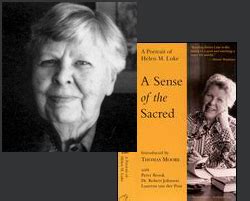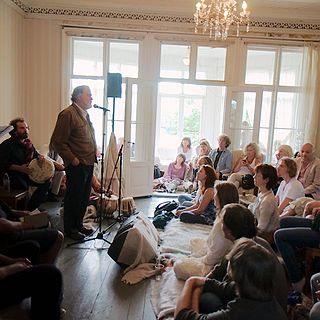A Quote by Henry Fuseli
Nature is a collective idea, and, though its essence exist in each individual of the species, can never in its perfection inhabit a single object.
Quote Topics
Related Quotes
Faith is precisely the paradox that the single individual as the single individual is higher than the universal, is justified before it, not as inferior to it but superior - yet in such a way, please note, that it is the single individual who, after being subordinate as the single individual to the universal, now by means of the universal becomes the single individual who as the single individual is superior, that the single individual as the single individual stands in an absolute relation to the absolute.
But we must here state that we should not see anything if there were a vacuum. But this would not be due to some nature hindering species, and resisting it, but because of the lack of a nature suitable for the multiplication of species; for species is a natural thing, and therefore needs a natural medium; but in a vacuum nature does not exist.
Individuality in universality is the plan of creation. Each cell has its part in bringing about consciousness. Man is individual and at the same time universal. It is while realising our individual nature that we realise even our national and universal nature. Each is an infinite circle whose centre is everywhere and circumference nowhere. By practice one can feel universal Selfhood which is the essence of Hinduism. He who sees in every being his own Self is a Pandita (sage).
By "essence" I understand a universal, of any degree of complexity and definition, which may be given immediately, whether to sense or to thought.... This object of pure sense or pure thought, with no belief superadded, an object inwardly complete and individual, but without external relations or physical status, is what I call an essence.
To the mind which looks not to general results in the economy of Nature, the earth may seem to present a scene of perpetual warfare, and incessant carnage: but the more enlarged view, while it regards individuals in their conjoint relations to the general benefit of their own species, and that of other species with which they are associated in the great family of Nature, resolves each apparent case of individual evil, into an example of subserviency to universal good.
The widely accepted assertion that, only if you let markets be will everyone be paid correctly and thus fairly, according to his worth, is a myth. Only when we part with this myth and grasp the political nature of the market and the collective nature of individual productivity will we be able to build a more just society in which historical legacies and collective actions, and not just individual talents and efforts, are properly taken into account in deciding how to reward people.
Anyone who is kind to man knows the fragmentariness of most men, and wants to arrange a society of power in which men fall naturally into a collective wholeness, since they cannot have an individual wholeness. In this collective wholeness they will be fulfilled. But if they make efforts at individual fulfilment, they must fail for they are by nature fragmentary.
A “collective” mind does not exist. It is merely the sum of endless numbers of individual minds. If we have an endless number of individual minds who are weak, meek, submissive and impotent – who renounce their creative supremacy for the sake of the “whole” and accept humbly that the “whole’s” verdict – we don’t get a collective super-brain. We get only the weak, meek, submissive and impotent collective mind.
The basis of artistic creation is not what is, but what might be; not the real, but the possible. Artists create according to the same principles as nature, but they apply them to individual entities, while nature, to use a Goethean expression, thinks nothing of individual things. She is always building and destroying, because she wants to achieve perfection, not in the individual thing, but in the whole.
I liked the idea of a self-contained, endless pursuit of perfection. But I have a problem with perfection. I don't think perfection is very artful. But there's something I liked about the image of a skater going in this endless twisted circle that doesn't have any real endpoint. So the object is not to stop or arrive anywhere; it's just to make this thing as beautiful as they can.








































